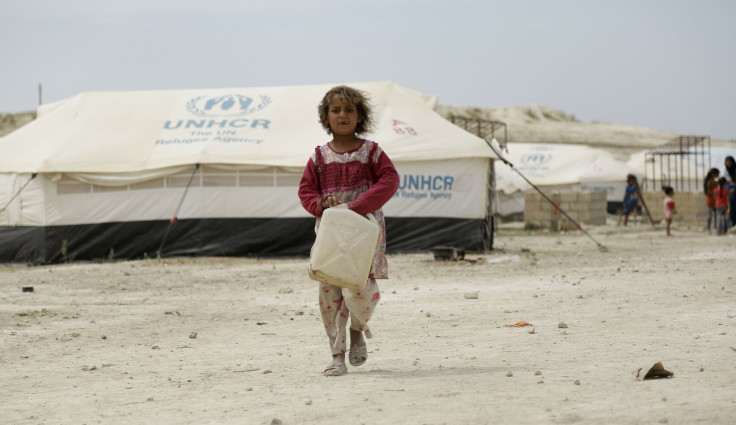UN General Assembly Summit Hopes To Tackle Refugee Crisis

The United Nations is hosting its 71st General Assembly in New York on Monday where the refugee and migrant crisis will take center stage. This U.N. summit is the final one for Secretary General Ban Ki-moon and President Barack Obama, and the first for United Kingdom’s Prime Minister Theresa May.
The meeting is expected to result in a concrete plan on helping the world’s 65.3 million people who have been displaced due to political crises and wars. According to the U.N. Refugee Agency (UNHCR), among them are nearly 21.3 million refugees, of which over half are below the age of 18. The UNHCR says nearly 34,000 people are forcibly displaced every day.
Monday’s summit also follows the failure of the Syrian ceasefire proposed by the U.S. and Russia. Over the weekend, violations of the ceasefire and hindrances to the delivery of humanitarian aid caused it to crumble and resulted in an emergency U.N. meeting Saturday night.
Speaking ahead of the summit, Secretary General Ban said that while conflicts around the world are causing much tragedy, they pale in comparison to the worsening situation in Syria. “Major countries with influence have a duty to use their influence and seize this latest opportunity to pursue a political solution,” he reportedly said.
The U.N. described Monday’s summit as “a watershed moment,” calling it the first ever to address “large movements of refugees and migrants.” At least 135 world leaders and several ministers are expected to attend the summit.
Ban’s report on the movements of refugees and migrants forms the basis for the summit document. The summit’s 22-page proposal hopes to ensure migrants are given “a people-centered, sensitive, humane, dignified, gender-responsive and prompt reception.”
“It’s very interesting because if we are able to translate that paper into a response in which many actors are going to participate, we will solve a lot of problems in emergency responses and in long-term refugee situations like the Syrian situation,” Fillipo Grandi, the U.N.’s High Commissioner for Refugees, told the Associated Press.
However, organizations like Amnesty International are skeptical of the success of Monday’s summit. Amnesty International secretary general Salil Shetty said in a statement that the summit on the “worst refugee crisis in 70 years” is “doomed to abject failure.”
“Instead of sharing responsibility, world leaders shirked it. The U.N. summit has been sabotaged by states acting in self-interest, leaving millions of refugees in dire situations around the world on the edge of a precipice,” Shetty said. “U.N. member states have both a moral and a legal duty to welcome the refugees who need help today.”
Turkey’s President Recep Tayyip Erdoğan said Monday he will also discuss the Syrian war, as well as the unsuccessful July 15 coup attempt, in his U.N. address.
Obama has called for a follow-up summit Tuesday where at least 45 countries are expected to make pledges to help with the goals set by the U.S., which include increasing humanitarian aid by $3 billion, doubling resettlement and improving access to education for nearly one million youths and improving employment opportunities for those displaced.
“You hear all around the world the U.N. hasn't handled the refugee crisis. The way the U.N. will handle the refugee crisis is if all of us countries within the U.N. step up and dig deep and face those political headwinds that we all face, to do more, to give more, to take on a greater share of the resettlement challenge,” U.S. ambassador to the U.N. Samantha Power said.
© Copyright IBTimes 2024. All rights reserved.






















